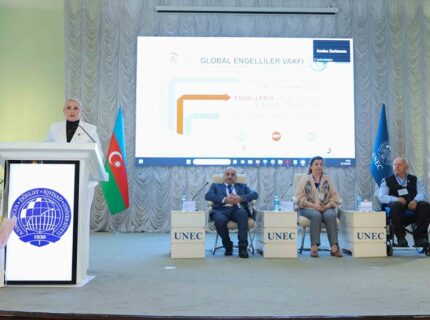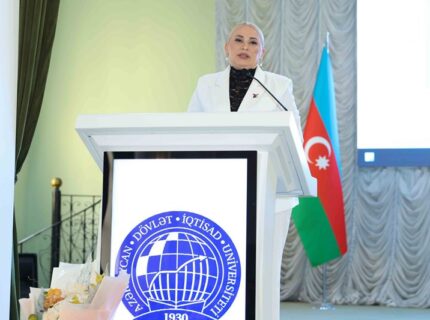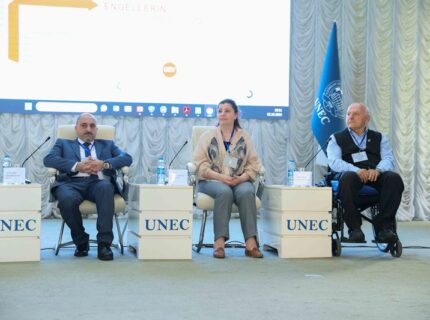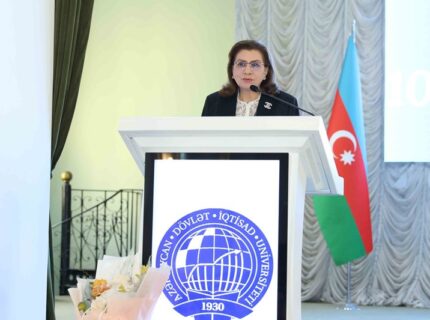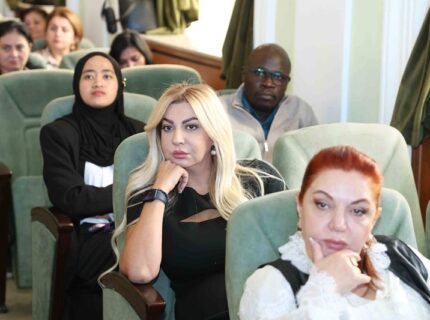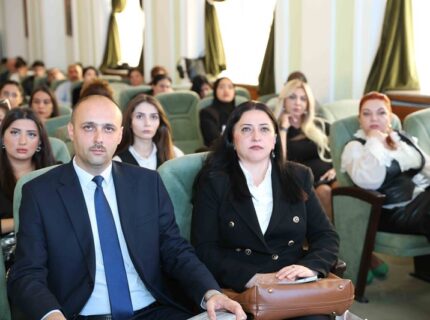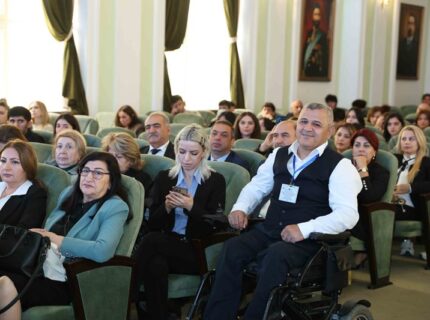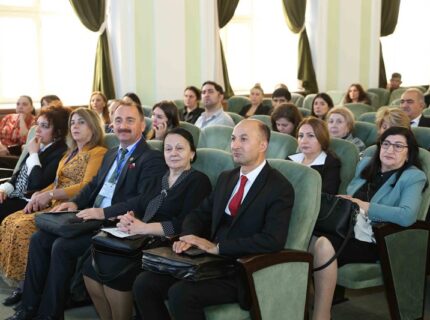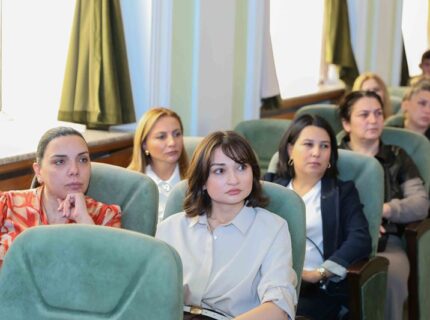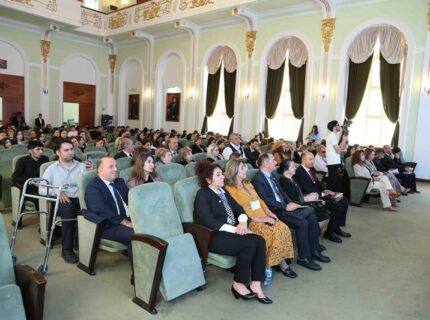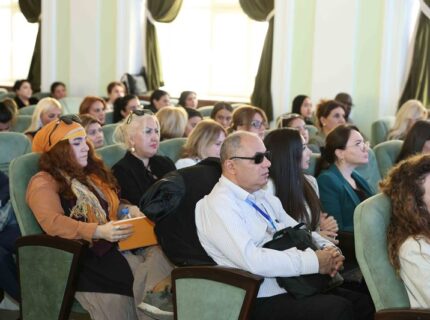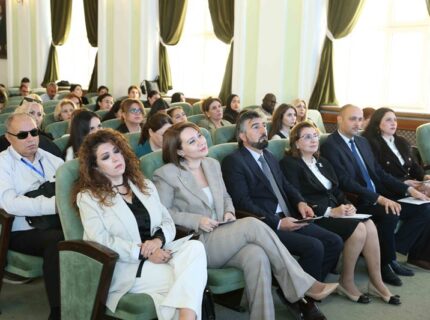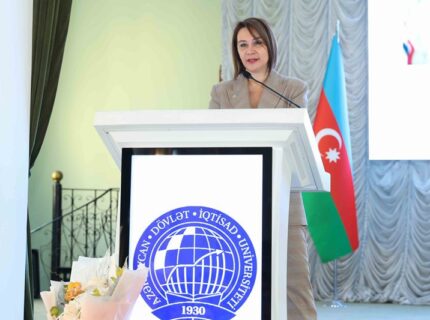International conference on “Inclusive Higher Education: Academic Mobility and Access to International Education” held at UNEC
An international conference on “Inclusive Higher Education: Academic Mobility and Access to International Education” is being held at UNEC.
Dedicated to the 10th anniversary of the UNEC Inclusive Education Center, the opening session brought together local and international experts, representatives of higher education institutions, students, and other guests.
In her opening address, Sevinj Mahsimova, Director of the UNEC Inclusive Education Center, noted that the main objective of the conference is to bring together local and foreign experts in the field of inclusive education to discuss inclusive education strategies, opportunities of digital transformation, and the challenges related to the application of artificial intelligence.
Reviewing the Center’s 10 years of activity, she emphasized the creation of a successful model of inclusive education at UNEC. She underlined that UNEC has become a preferred institution of higher education for youth with disabilities, with the number of such students increasing year by year. She also highlighted the establishment of an inclusive environment for them, opportunities to participate in international exchange programs, the launch of the UNEC Psychological Services Center, and the expansion of student support services.
Associate professor Saadat Gandilova, vice-rector for student affairs, announced that 2025 has been declared the “Year of Inclusive Education” at UNEC, stressing that ensuring access to education and maintaining an inclusive environment are among the university’s core values. She added that, alongside the Inclusive Education Center, UNEC also operates a Student Volunteer Organization for Support to Inclusive Education. Qandilova emphasized that the creation of an inclusive environment at UNEC extends beyond academic processes to encompass social life as well, thereby ensuring equal opportunities for all students.
In her address, Nargiz Hajiyeva, director of the British Council Azerbaijan, spoke about the importance of supporting an inclusive environment, noting that accessible education is one of the key elements of inclusivity. She stressed that education based on equal opportunities makes societies stronger, more sustainable, and more innovative.
Nejdet Ozturk, executive director of the World Disability Union, highlighted the long-standing successful cooperation with UNEC and praised the university’s development of a successful model of inclusive education. “Currently, 15% of the world’s population are persons with disabilities. These individuals should be a priority for governments, higher education institutions, and society at large,” he stated, appreciating UNEC’s efforts in this direction. He also expressed confidence that the proposals made during the conference would be valuable and wished success to its participants.
The conference also featured contributions from academician Keneshbek Alymbekov of the Kyrgyz Academy of Engineering, professor Lefkothea Kartasidou of the University of Macedonia, professor Katarina Askerc Zadravec, vice-dean of the University of Slovenia, professor Zehra Altınay of Near East University (Northern Cyprus), professor A. Alp Arslan, UK representative of the World Disability Union, Habiba Erin from Istanbul Aydın University, and Aydin Khalilov, chair of the Independent Living Center for Persons with Disabilities. The speakers shared their experiences and successful models in inclusive education, highlighting the importance of enabling students with special educational needs to benefit from international education opportunities, as well as the role of digital technologies and artificial intelligence in inclusive education.
Following the opening session, panel discussions were held on “Global Trends in Inclusive Higher Education” and “Access to International Exchange Programs for Students with Special Educational Needs.”
On October 3, the conference will continue with panel discussions on “Inclusivity in the International Context: Comparative Analysis of Different Countries”, “Innovative Approaches to Ensuring Accessibility”, “Smart Cities and the Role of Digital Technologies in Developing Inclusive Societies”, “Artificial Intelligence and Interaction with Persons with Disabilities”, and “Application of Artificial Intelligence for Students with Special Educational Needs.”
